Why you can trust Tom's Hardware
3DMark and PCMark
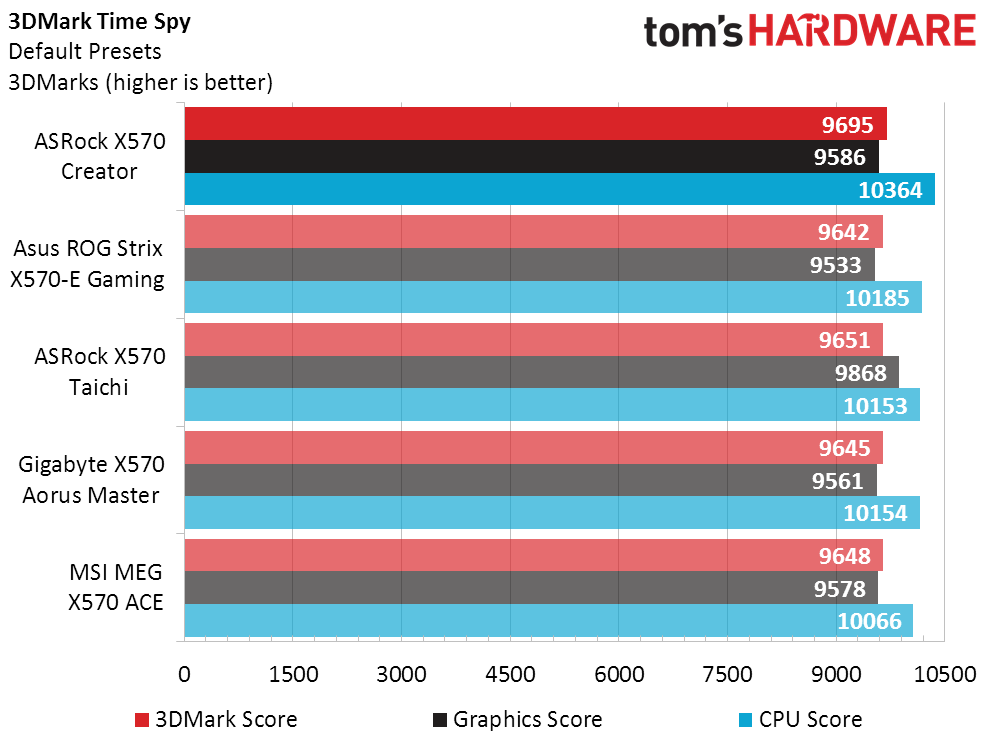
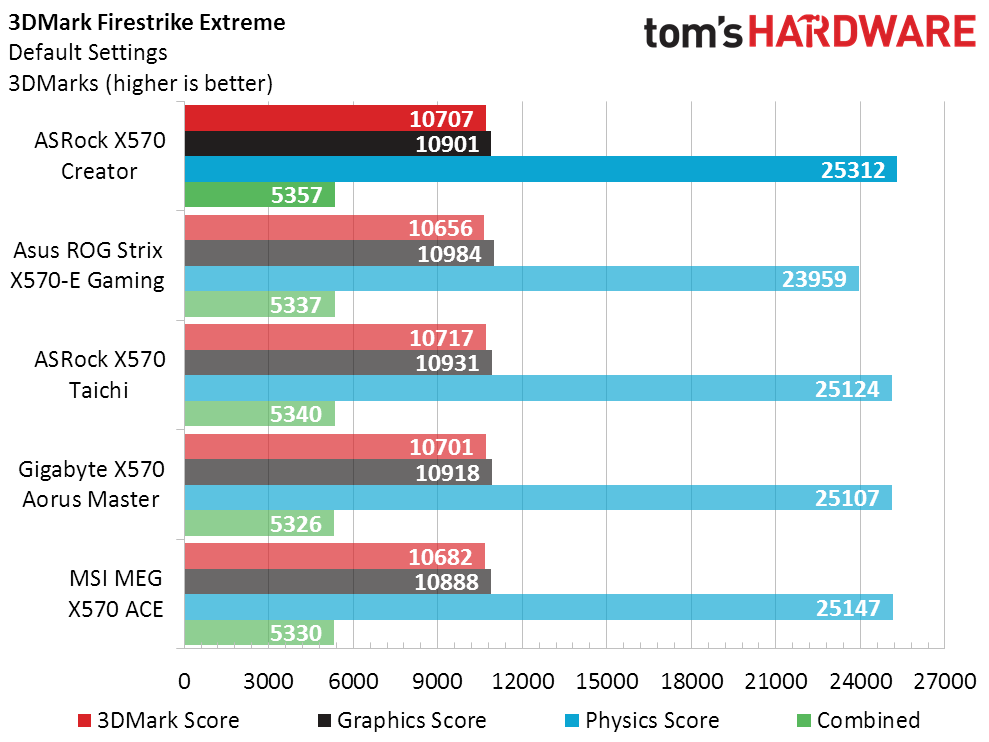
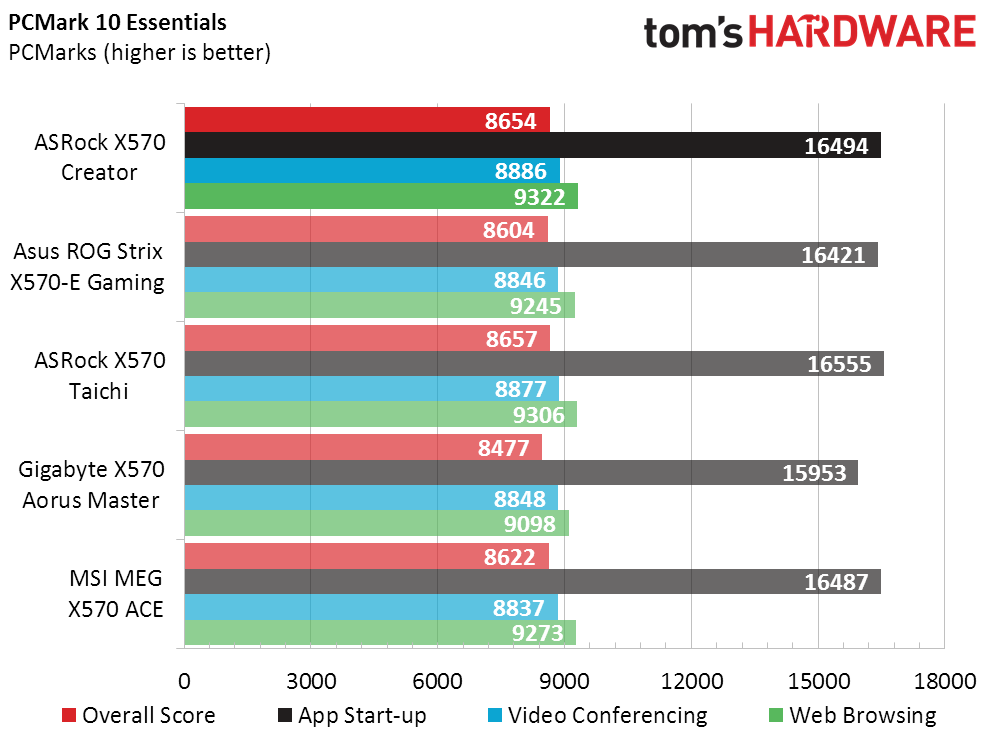
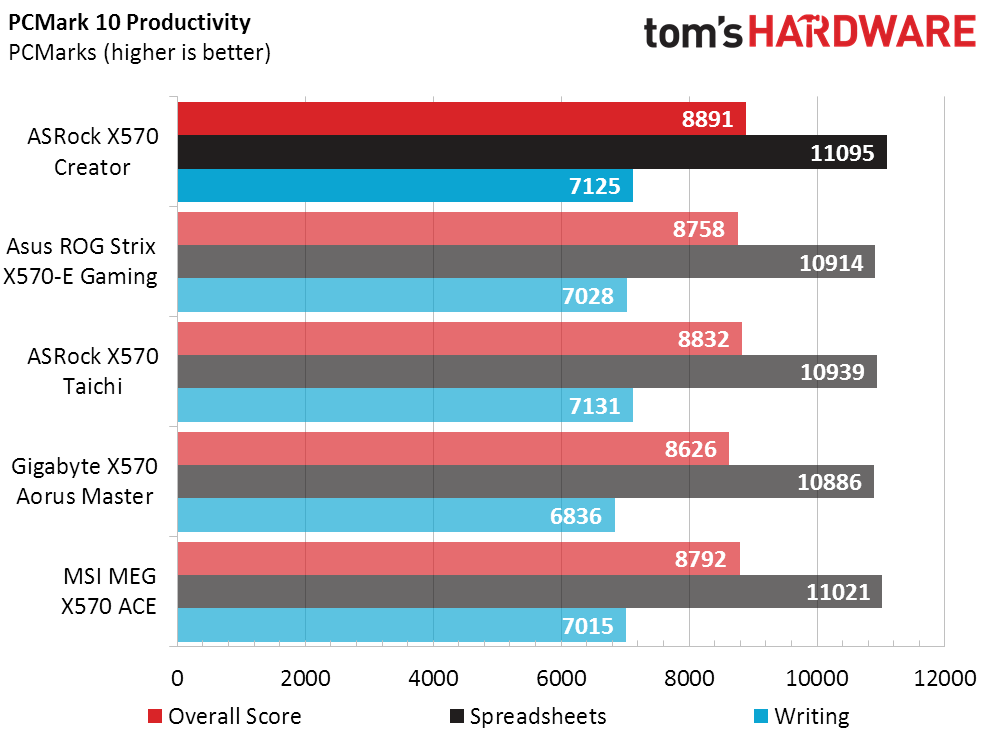
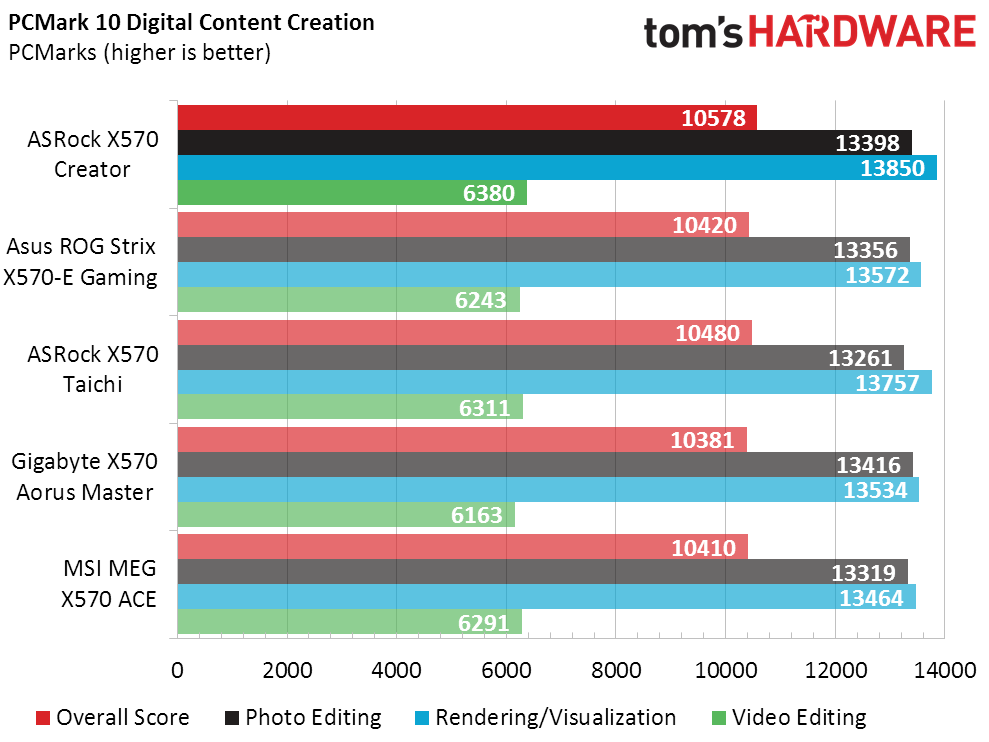
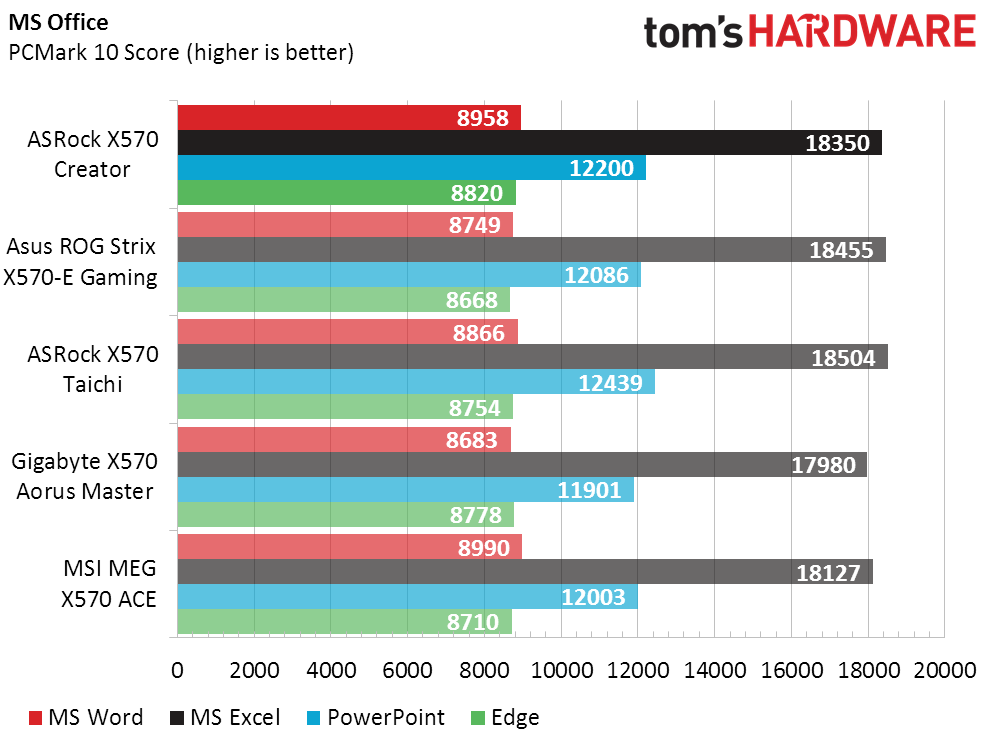
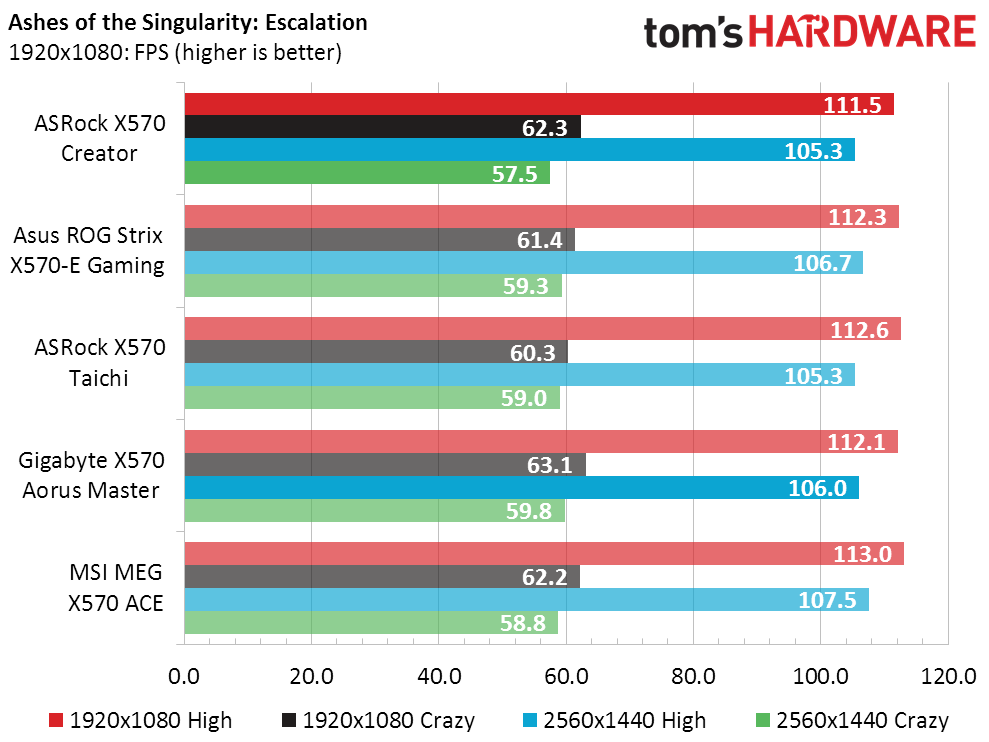
We credit the X570 Creator’s newer firmware for higher CPU scores in 3DMark, but that gain barely made an impact in PCMark Essentials, with a less-than-1% advantage in web browsing. It made a clean sweep of PCMark Digital Content Creation, but came out roughly tied in MS Office.
3D Gaming
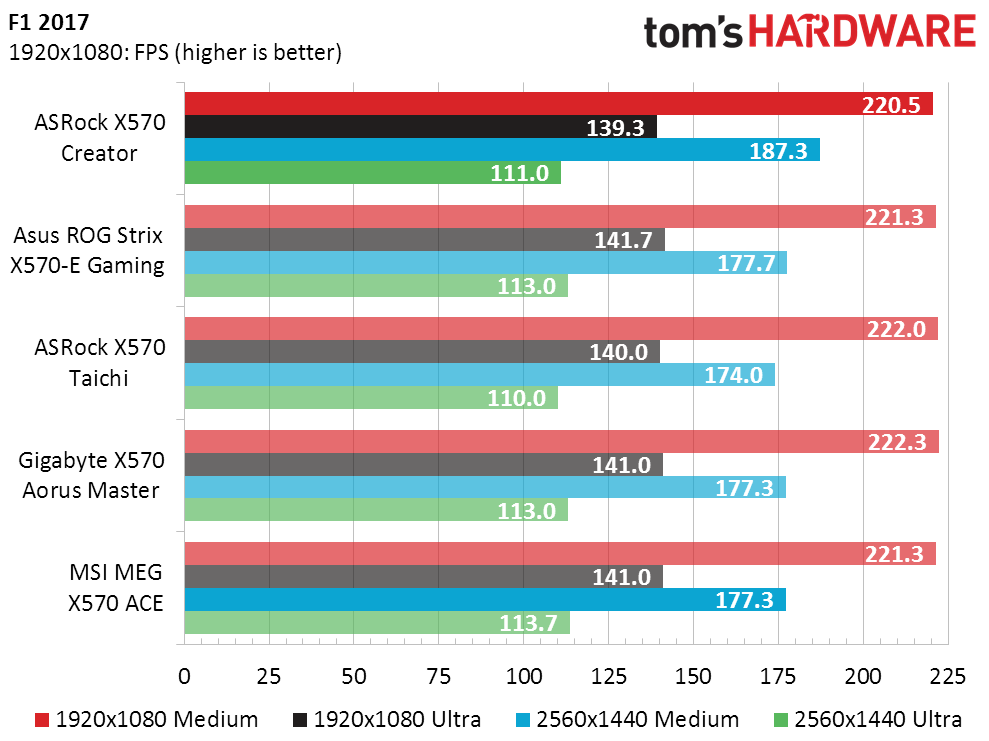
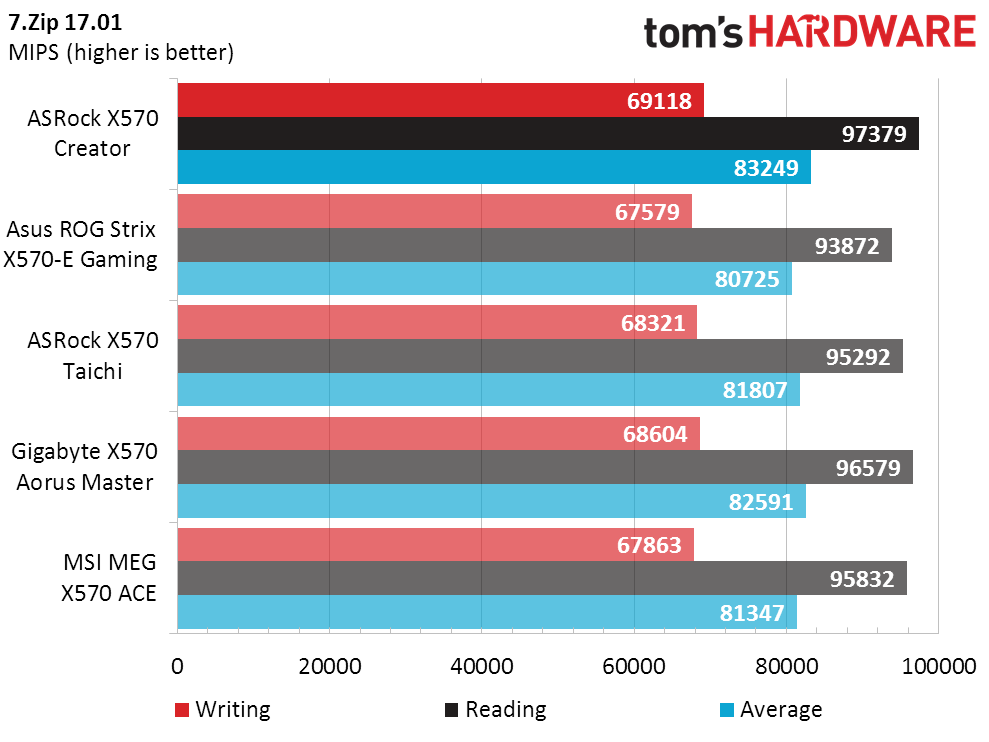
The X570 Creator swaps positions at various Ashes settings to take third place overall, but somehow gets a big enough jump in just one of our F1 2017 tests to emerge victorious by a mere 1%.
Mixed Applications
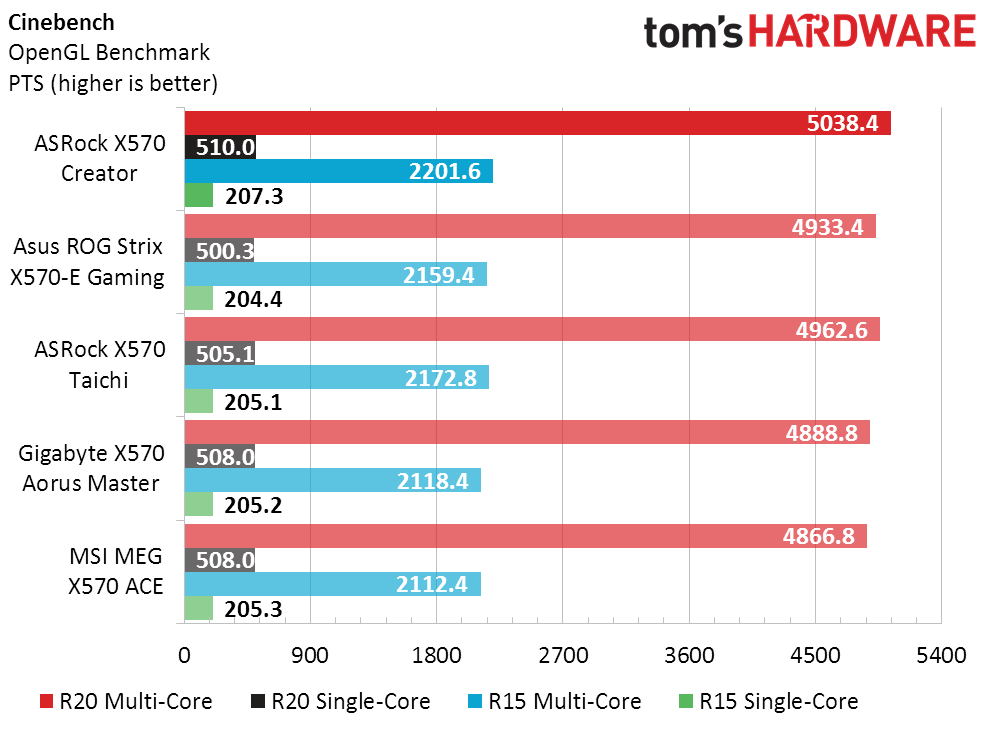
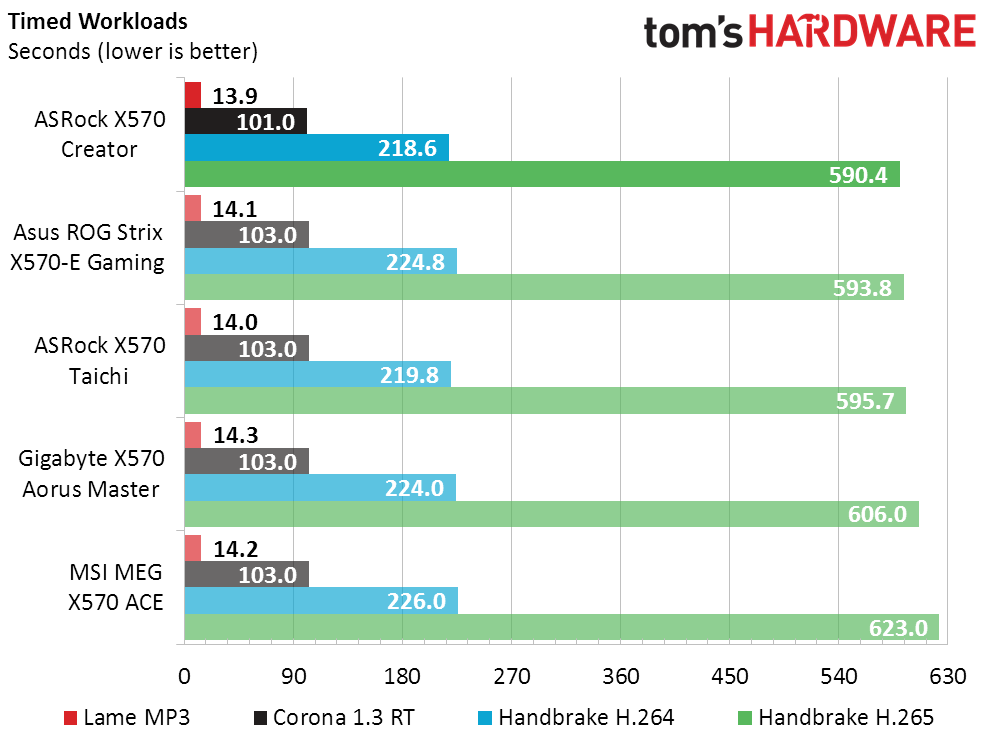
The X570 Creator also showed higher scores on Cinebench, as well as our complete set of timed workloads. If this is what AMD’s new microcode does, our congratulations should go there.
Power, Heat and Efficiency
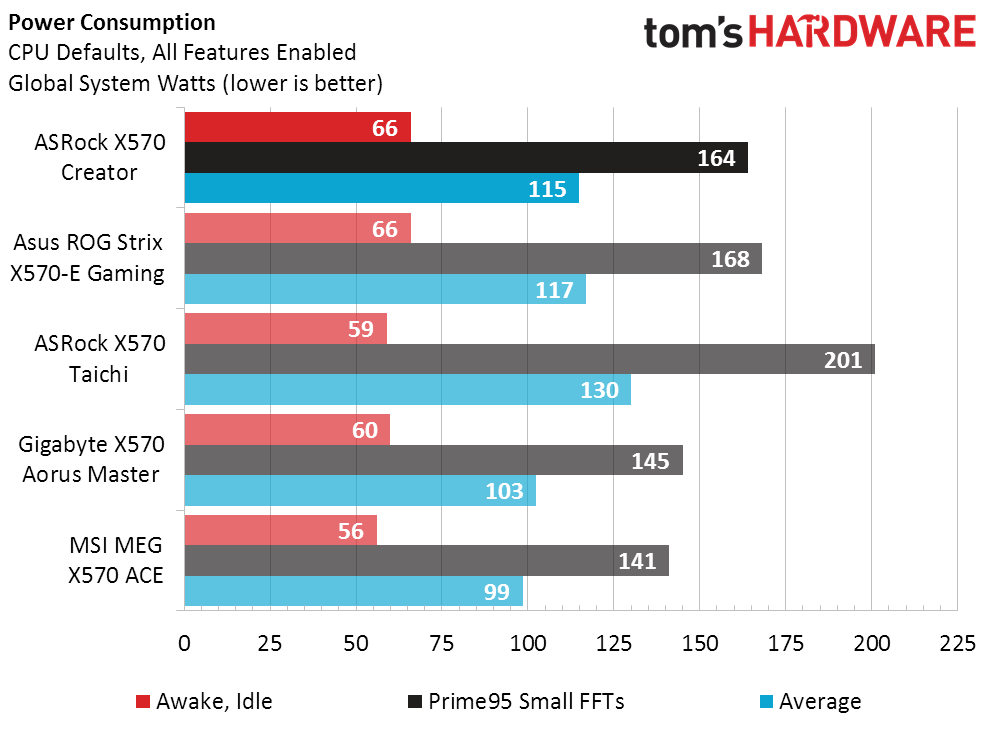
The X570 Creator throttles our CPU back to 3950 MHz under a fully multithreaded load of Prime95, while the Taichi from the same brand ran up to 4.1 GHz and the Strix X570-E Gaming ran 3950 to 3975 MHz.
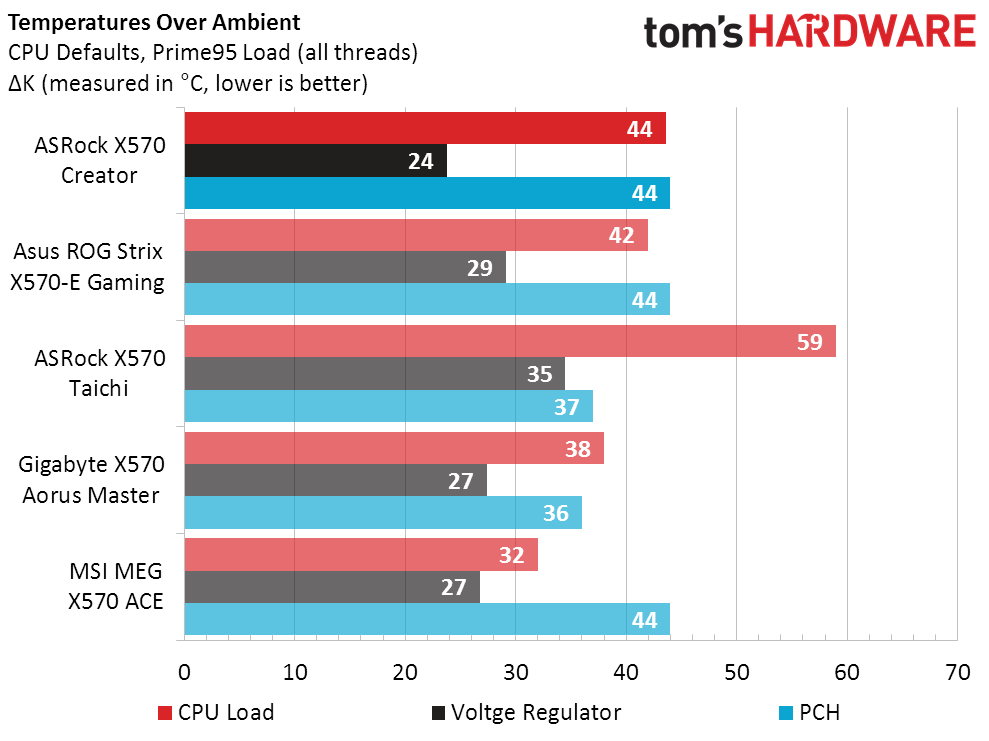
Since the CPU power settings of both boards are so similar, it’s important to discuss how the X570 Creator compares to the X570-E Gaming. Both boards have similar CPU thermal readings, though the ROG Strix model has a slightly warmer voltage regulator.
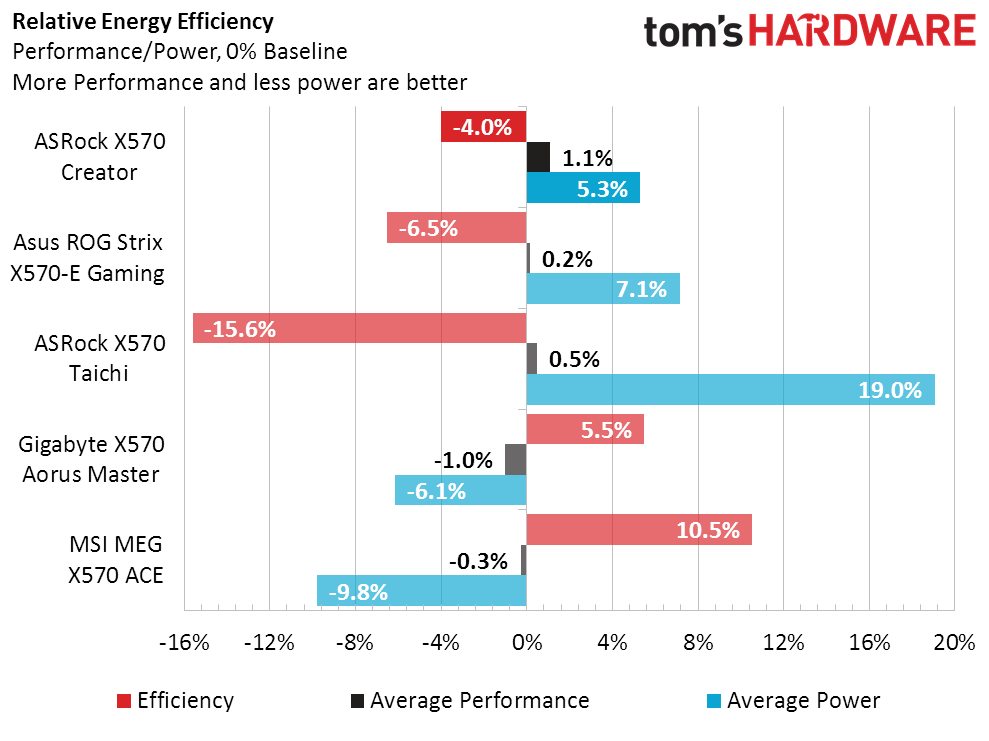
Gigabyte and MSI samples skewed our efficiency results by clocking our CPU down to 3.8 GHz. Even if we adjusted our chart to account for the approximately 4% difference in clock speed, the MEG X570 Ace would still win the efficiency crown.
Final Analysis
One thing to note in our performance-per-dollar chart: The Creator has more features than its competitors. If all you care about is performance and price, that makes the Creator tough to argue for. But you do get more for you money in other ways with this board.
Get Tom's Hardware's best news and in-depth reviews, straight to your inbox.
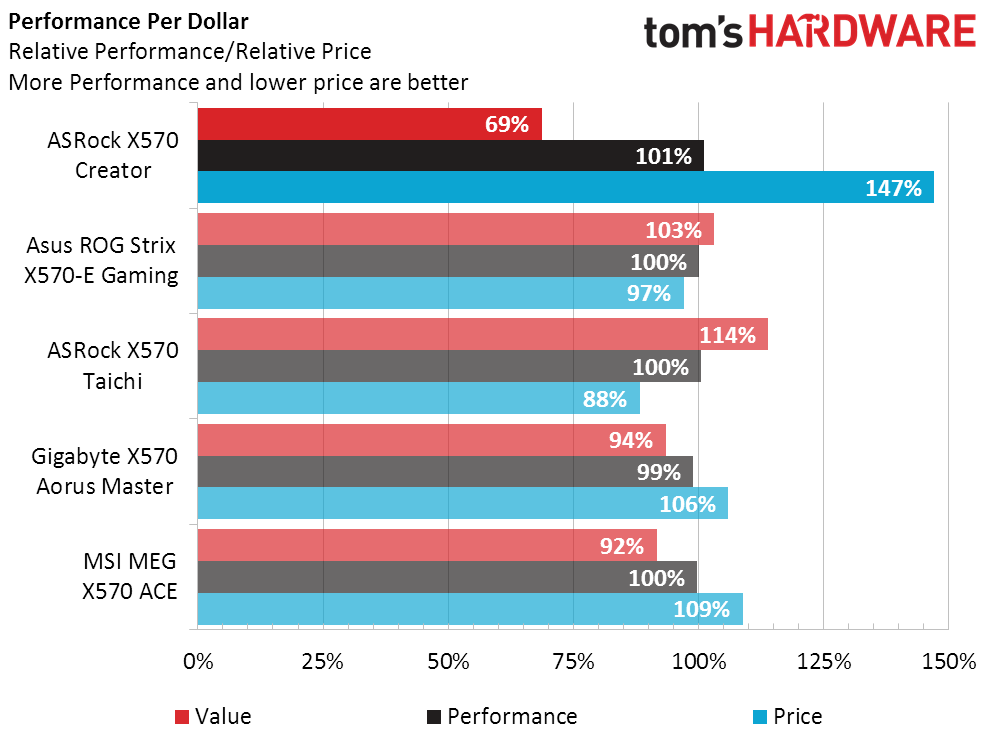
None of the comparison boards have Thunderbolt 3 or 10GbE, though the copper cabling of 2.5GbE give the second network interface of Asus, Gigabyte and MSI broader compatibility.
The cheapest of the comparison boards, ASRock’s own X570 Taichi doesn’t even have a second wired network interface. The X570 Creator’s extra features are probably worth an extra $200 at most, and it costs exactly $200 more.
Competing samples from Asus, Gigabyte, and MSI cost $30 to $60 more, and our previous reviews pointed out how each of these was worth the upgrade. That just makes this a tie from a value perspective, so our best advice is to pick from these the board that best fits your compatibility, efficiency, and overclockability needs.
MORE: Best Motherboards
MORE: How To Choose A Motherboard
MORE: All Motherboard Content
Current page: ASRock X570 Creator Benchmark Results and Final Analysis
Prev Page ASRock X570 Creator Software, Firmware and Overclocking-
TheZander I'm not exactly positive on the release date, but I believe the most logical competitor to this board would be the MSI Creation Prestige X570. Same price. Similar target audience. I realize I'm late to see this review, but leaving out the best competitor to the ASRock Creator seems a glaring oversight.Reply
Was it simply because the MSI board wasn't released yet? -
Crashman Reply
Yes, I don't know how the article could have included a board that wasn't available yet ;)TheZander said:I'm not exactly positive on the release date, but I believe the most logical competitor to this board would be the MSI Creation Prestige X570. Same price. Similar target audience. I realize I'm late to see this review, but leaving out the best competitor to the ASRock Creator seems a glaring oversight.
Was it simply because the MSI board wasn't released yet? -
TheZander ReplyCrashman said:Yes, I don't know how the article could have included a board that wasn't available yet ;)
I suppose the MSI Creation must be their answer to this board. Do you know if Tom's reviewed the prestige creation? I'll have to do some googling ... -
Crashman Reply
I doubt it, but you can go ahead and do the web search.TheZander said:I suppose the MSI Creation must be their answer to this board. Do you know if Tom's reviewed the prestige creation? I'll have to do some googling ...
